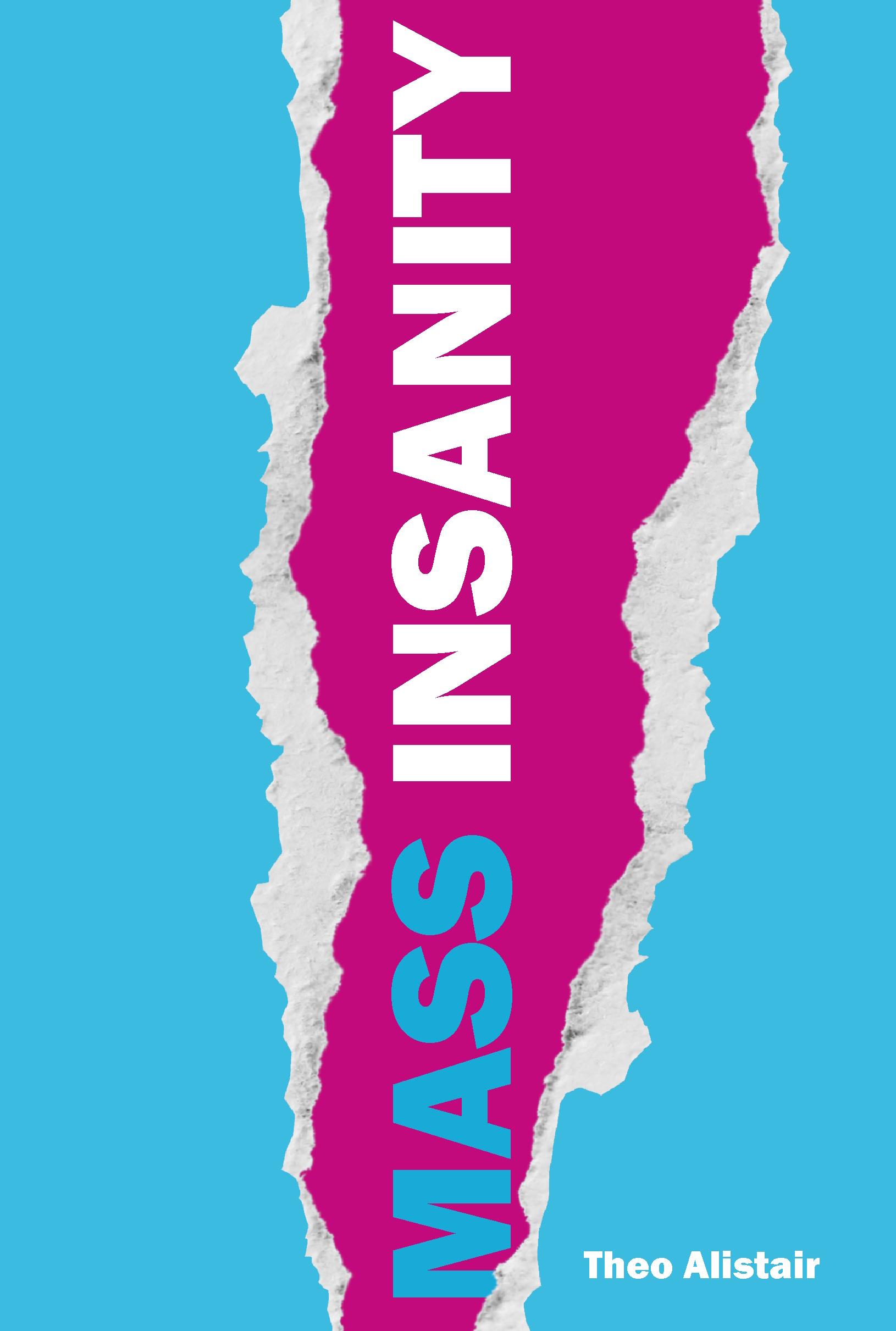National Identity in a Volatile Time

John E. Kaye

Social psychologist Dr Theo Alistair fears that the erosion of British national identity in the name of ‘tolerance’ may, paradoxically, ultimately lead to the fragmentation of British society, civil conflict, and intolerance.
By Dr Theo Alistair
Societies arise when individuals share a set of characteristics, values, and goals and start defining themselves as members of a group.
They become united through a collective identity. Preserving this dominant collective identity, which at the same time differentiates this population’s ‘group’ from other groups, gives the population a shared sense of belonging and pride.
The notion of states built on national identity rather than affiliation to a ruling dynasty or a religion comes predominantly from Europe, and has been shown to be a sine qua non for any society to remain prosperous and free.
It has played a decisive role in advancing European societies throughout the ages. For instance, in the current war in Ukraine it is the resilient national identity of Ukrainians which has been stopping the Russian army, first and foremost, with millions of people fighting and making sacrifices because they see themselves as members of a unique group worth defending.
In the UK, it can be argued that a common national identity motivated Britons to make great sacrifices during two world wars, and empowered them to rebuild their country from the ashes thereafter.
Britain’s national identity, however, may be seen by some as being under attack and eroding swiftly.
This could, I fear, have significant ramifications for the UK’s continued unity, peace, and prosperity.
This erosion results from many factors. One of the main causes is the systematic denigration of the British identity through the unfair presentation of British history as a long series of crimes, injustices, and exploitations of other nations.
There is also the rejection of British icons and symbols through the irrational minimisation of the achievements and contribution of the British people in favour of amplifying the successes of other groups and cultures.
A third challenge comes from the propagation of a more extremist form of multiculturalism rhetoric which argues that all cultures are equal with one exception, British culture, which is viewed as being malicious.
This, combined with other policies such as the decolonisation of curricula and the normalisation of illegal immigration, can be seen as deeply problematic.
This is because of what philosopher Karl Popper labelled as the ‘paradox of tolerance’. According to it, if a society is tolerant without limit and, hence, allows intolerant communities to spread hatred and destructive ideas, they will eventually take over and cleanse that society of any tolerance.
The decisive aspect in this line of thinking is the drastic demographic change within the UK resulting from the mass migration of groups that have different religions, cultures, languages, values, and, hence, identity.

Mass Insanity provides powerful and fascinating new insights into the extremist mindset and how to combat its spread within communities. Mass Insanity is published through Liberty in Print, an independent publishing house praised for its commitment to freedom of speech and the critical examination of topical themes and ideas.
The results of the recent census show that several British cities and towns are divided among ethnic and religious lines, and each community is contained within a specific area.
These changes have made the question of immigration and its effect on the cohesion of the British society an uncomfortable yet urgent issue.
We need to consider which, if any, of these groups are, on a collective level, fundamentally intolerant and why.
For, from a social psychology perspective, the influx of intolerant groups could, in the long run, exacerbate the disintegration of the British collective identity, enable the growth of home-grown terrorism, and represent the prelude to civil conflict.
Even so, many are afraid to discuss this issue honestly and openly in public due to concerns over political correctness, cancel culture, and widespread censorship.
This is a worrying sign as societies in which people can’t discuss pressing issues freely won’t be able to deal with them.
Indeed, the erosion in freedom of academic expression is one of the hallmarks of dictatorial and regressing societies, and failed states.
Advocates of uncritical multiculturalism agree that different cultures and beliefs can be compatible with British secular society and its Christian-based values.
Opponents, however, state that these may be incompatible.
Both sides, though, seem to be overlooking an important issue: the need to redefine ‘Britishness’ and apply it. Based on my research, it is clear that collective identity is an end and a means for further ends.
Being part of a group that has specific values, goals, and characteristics is one of our basic needs as humans.
Through the sharing of a common and mutually embraced identity, the potential for extremist ideas to take root and grow within a society are reduced.
But for any identity to remail viable, it needs to represent the true feelings and ideas of the people – not be forced upon them by a detached elite.
It also must be protected by law.
The British government must work to build and uphold the identity of its people – for it is this collective identity that brings harmony and strength to a nation – and revise its policies based on this central principle.
To protect the British identity, our leaders must uphold the laws without any discrimination or biases, negative or positive. British people must be treated as individuals, not groups, and the way to acquire British citizenship must reflect commitment to the country, its heritage, values, and identity. Illegal immigration should be dealt with in accordance with the law that protects the sovereignty of the country and punishes any intrusion.
We need to remember that when the national identity stops being beneficial, it collapses, and tribal identities arise. People become divided based on their religion, ethnicity, or region. This usually leads to conflicts between people who were once one group.
Leaders should have the courage to be critical and honest about the communities that form the nation, and to act positively on that basis.
Only acting as a united nation, with a clear definition and understanding of each member’s adherence to a shared set of mutually respected values, can Britain ensure that it can repel extremism, and that tolerance is not ultimately sacrificed in its own name.
Q&A Interview With Dr Theo Alistair
Having been in New York on 9/11, and in London during the 2005 bombings, psychology professor Dr Theo Alistair redirected the focus of his studies to explore the roots of terrorism, revealing how otherwise law-abiding societies can fall victim to ‘mass insanity’ – the collective embracement and endorsement of extremism. For the past 15 years he has worked tirelessly on his ground-breaking new book, Mass Insanity, which uses theories of social, clinical, and forensic psychology to analyse radical mindsets within societies to uncover the principal psychological mechanisms behind suppression, aggression, and conformity.
If correct, Dr Theo Alistair’s evidence-based study could provide the West with the most sane way to understand and defuse the insanity of extremist thought. We spoke to him to learn more …
Q. How would you define ‘mass insanity’, and how does it provide a deeper understanding of radical thought?
A. When a society adopts a totalitarian system of belief that is based on dehumanising other groups and justifying harming them while seeing the in-group members as simultaneously victims and superior, the normal and sane way of thinking and behaviour becomes abnormal, while the pathological thinking and aggression becomes the norm.
On many occasions throughout history, we have seen how societies behaved in an insane way, or to be more precise, in a way similar to an antisocial personality disorder patient’s way of thinking. For instance, if we look at Nazi Germany, we find that for the Nazis the abnormal became ‘normal’ and vice versa.
At an individual level, we would say that this person has lost his or her mind: why would they hurt people just because they are a Jew or homosexual?
But because the dominant way of thinking presented exterminating Jews, homosexuals, and freethinkers as a means for the greater good (protecting oneself), it became normal and accepted behaviour for many people.
I am arguing that in order to understand radicalism, we need to understand the belief system behind it and counter it.
In Mass Insanity, I discuss how terrorist acts have been normalised in advance. Radical thought did not come from a void. It has its sources – which I discuss in detail.
Q. How can governments apply these new psychological tools in the fight against extremism?
A. To deal with extremism in an effective way, it is essential to understand its psychological foundations. I explain these foundations in Mass Insanity. I discuss why extremism is appealing to some people, and who is most likely to become an extremist. I also explain the mindset that creates hatred, justifies violence, and suppresses women and minorities. Thus, any government interested in combating extremism can use these ideas as a starting point.
Q. From a geopolitical perspective, what new insights do these tools reveal about totalitarian societies, and how the West can better engage with such nations?
A. They show that the West is not immune to totalitarian or divisive ideologies. Combating intolerant groups and movements should start with exposing their irrational ideas. This must be done in a systematic and direct way. It has been successfully done in the past. We need to bear in mind that many of the followers of harmful ideologies are themselves misled victims. Through exposing the faults and contradictions of the ideology, as well as its consequences, we can save them by preventing them from wasting their lives and harming other people.
Q. You state that Western civilisations are in decline. What do you mean by this, and how is it connected to the rise in extremism?
A. Great civilisations tend to fall for various reasons. One of the problems with the current Western civilisation is the paradox of tolerance. In many societies, people are forced to abstain from stating facts while intolerant ideas are allowed to be propagated with protection from any challenge. In many cases, noble and great notions such as multiculturalism and tolerance are being misused to stifle freedom of expression.
Q. You began your academic career in clinical psychology before moving into social psychology. What prompted the change in direction?
A. I was in New York City during 9/11. The way these attacks were celebrated by many people, even individuals living in New York City, bewildered me. To understand this abnormal behaviour, I conducted several studies with extremists and terrorists which made me realise it is important to study how societies establish the ‘normal’ and the ‘abnormal’, and how they can manipulate their members.
Q. How did your new book come into being, and how much research was undertaken in its writing?
A. It took 15 years to research and put together. I’ve interviewed countless people and read volumes and volumes of surveys, studies, and questionnaires. I went back to the original texts and sources.
Q. What is your key recommendation to British political leaders to counter the establishment of ‘insane’ communities within the UK?
They need to apply laws that preserve the unity of the people. People fight and believe in their countries when the feel appreciated. Listen to your people first of all and understand that delaying or overlooking current pressing issues is not the way to remain in power.
Mass Insanity by Dr Theo Alistair is available now from Waterstones and publisher Liberty in Print in paperback, hardcover, and eBook formats, priced £18, £20, and £16 respectively. It can be purchased online via Gazelle Book Services. For more information, visit www.libertyinprint.com or Twitter @massinsanityBK.
RECENT ARTICLES
-
 Afore SURA awarded Pension Fund Management Company of the Year 2025
Afore SURA awarded Pension Fund Management Company of the Year 2025 -
 BOV Fund Services Limited wins in The European Banking & Finance Awards 2024
BOV Fund Services Limited wins in The European Banking & Finance Awards 2024 -
 Amberdata wins two titles in The European Banking & Finance Awards 2024
Amberdata wins two titles in The European Banking & Finance Awards 2024 -
 Ajman Bank wins in The European Banking & Finance Awards 2024
Ajman Bank wins in The European Banking & Finance Awards 2024 -
 Creditú wins three titles at The European Banking & Finance Awards 2024
Creditú wins three titles at The European Banking & Finance Awards 2024 -
 Krungthai Bank PCL wins five awards in The European Banking & Finance Awards 2024
Krungthai Bank PCL wins five awards in The European Banking & Finance Awards 2024 -
 Oakridge Property Group wins at The European Global Business Awards 2024
Oakridge Property Group wins at The European Global Business Awards 2024 -
 Old Mutual Investment Group wins two titles at The European Global Banking & Finance Awards 2024
Old Mutual Investment Group wins two titles at The European Global Banking & Finance Awards 2024 -
 AXA IM Select wins at The European Global Banking & Finance Awards 2024
AXA IM Select wins at The European Global Banking & Finance Awards 2024 -
 Zenith Bank Ghana wins five titles at The European Banking & Finance Awards 2024
Zenith Bank Ghana wins five titles at The European Banking & Finance Awards 2024 -
 SeABank awarded The Risk Management Bank of the Year - Vietnam 2024
SeABank awarded The Risk Management Bank of the Year - Vietnam 2024 -
 Vista Land & Lifescapes Inc. wins three titles at The European Global Business Awards 2024
Vista Land & Lifescapes Inc. wins three titles at The European Global Business Awards 2024 -
 Boursa Kuwait wins two titles at The European Global Sustainability & ESG Awards 2024
Boursa Kuwait wins two titles at The European Global Sustainability & ESG Awards 2024 -
 Gulf African Bank wins four titles at The European Banking & Finance Awards 2024
Gulf African Bank wins four titles at The European Banking & Finance Awards 2024 -
 Gulf Insurance Group awarded two Global Banking & Finance titles for 2024
Gulf Insurance Group awarded two Global Banking & Finance titles for 2024 -
 Eccelsa Aviation awarded three Global Business 2024 titles, including Best FBO Brand – Europe
Eccelsa Aviation awarded three Global Business 2024 titles, including Best FBO Brand – Europe -
 Afore Sura awarded Pension Fund Management Company of the Year 2024
Afore Sura awarded Pension Fund Management Company of the Year 2024 -
 Toledo Capital AG wins Best Boutique Wealth Management - Family Office 2024
Toledo Capital AG wins Best Boutique Wealth Management - Family Office 2024 -
 Banco de Chile awarded four Global Banking & Finance 2024 titles, including Bank of the Year - Chile
Banco de Chile awarded four Global Banking & Finance 2024 titles, including Bank of the Year - Chile -
 Kontora Family Office GmbH awarded Best Wealth Management Services - Germany 2024
Kontora Family Office GmbH awarded Best Wealth Management Services - Germany 2024 -
 Banque Misr awarded five Global Banking & Finance 2024 titles, including Best Banking Brand - MENA
Banque Misr awarded five Global Banking & Finance 2024 titles, including Best Banking Brand - MENA -
 Krungthai Bank PLC wins five awards in The European Banking & Finance Awards 2023
Krungthai Bank PLC wins five awards in The European Banking & Finance Awards 2023






















